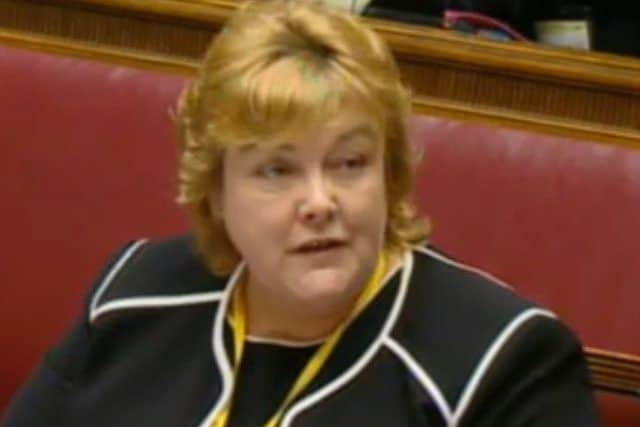RHI inquiry: official tells of '˜intimidating' lobbying call with Paisley
and live on Freeview channel 276
The phone call, made to Ofgem’s senior operations manager Teri Clifton, came in December 2015, several weeks after Stormont had finally introduced cost controls on the green energy scheme, a process which it is alleged that DUP members delayed, contributing to a huge surge in applications.
Ms Clifton gave evidence to the public inquiry into the RHI scandal on Thursday and spoke at some length about the lobbying, which was on behalf of a family who had hoped to get on to the scheme before cost controls were introduced.
Advertisement
Hide AdAdvertisement
Hide AdHowever, the application had not been received until long after the regulations were changed to end the ‘burn to earn’ element of the scheme.


Nevertheless, they believed that there had been an error by Ofgem and the application had been submitted in time.
Ms Clifton told the inquiry that she had checked with her IT department and obtained proof that it had not been submitted before the deadline, an error which she believed was the fault of green energy firm Action Renewables, which had been handling the application process for the applicant.
She said that out of the blue Mark Compston from Action Renewables, Mr Paisley, a representative of Moy Park and the applicants phoned her on speaker phone.
Advertisement
Hide AdAdvertisement
Hide AdShe said: “They all wanted me to accept the case on to the scheme prior to the tariff change date, as the applicants were going lose a significant amount of money (not determined).”


She said that it had been a “very intimidating” call “designed to catch me off guard”, although she said that she did not believe it was intended to be intimidatory.
Mr Paisley then contacted a special advisor at the DUP-run Department of Enterprise, Trade and Investment but Ms Clifton said that she stood by her decision and the applicants were only allowed to join the scheme with cost controls, a decision which she said Mr Paisley then accepted.
In written evidence to the inquiry, Ms Clifton also said that “the issue of legitimate use [whether boilers were being used legitimately] was not of particular significance to the department [DETI] until the scheme became controversial”.
Advertisement
Hide AdAdvertisement
Hide AdMs Clifton also said that DETI official Seamus Hughes had initially suggested that Action Renewables could audit installations but that she told him “this would be a conflict of interest due to the volume of applications that they had put through on behalf of applicants”.
Meanwhile, inquiry chairman Sir Patrick Coghlin has cautioned the media over coverage of comments by the head of the civil service, David Sterling, who on Tuesday told the inquiry that officials had adopted the practice of not recording many meetings with ministers due to the fact that the DUP and Sinn Fein were “sensitive to criticism”.
Sir Patrick said that the media had reported the inquiry in a responsible manner to date but that he was “a little concerned at the possibility of sensationalism arising”. He urged that evidence must be covered “in a careful and balanced way ... nobody is on trial”.